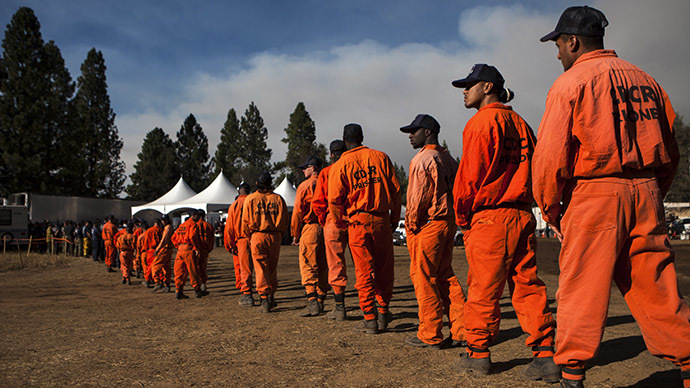Number of Americans exonerated hit record high in 2014

The number of wrongfully convicted Americans who were exonerated reached a record high in 2014, as officials became more willing to acknowledge mistakes made during prosecution.
According to a report by the National Registry of Exonerations, 125 people were exonerated in the United States last year. This marks the second year in a row that the number of Americans being exonerated reached new heights.
The Registry’s data also marks the first time that the number of exonerated Americans surpassed 100. Notably, the primary reason for the high number came down to a single county in Texas.
“The magnitude of the difference between 2014 and prior years – a 37% increase over 2012 and 2013 – is largely driven by a concentration of 33 exonerations in drug cases in Harris County (Houston) Texas, 30 more than there were in that county in 2013,” the report stated. “But 2014 was a record year even without Harris County; there were 91 non-Harris County exonerations in 2014, compared to 88 in 2012 and 87 in 2013.”
"It turns out that wrongful conviction is a much more common problem than everybody realizes.'' Prof Samuel Gross http://t.co/bdGFNpmSns
— FACT (@FACTukorg) January 27, 2015
Nearly all drug-related exonerations – 36 of 39 total – were for convictions based on guilty pleas, the report found. About 40 percent of all exonerations were based on guilty pleas. Interestingly, DNA evidence played a role in a relatively small number of cases – just 22 exonerations were a result of DNA testing.
Thanks to Harris County, the state of Texas led the way with 39 exonerations. New York followed with 17, while Michigan and Illinois were next, each with seven exonerations.
While exonerations rose again, the report linked the trend to the work done by “conviction integrity units,” which have been set up by states to ensure convictions were earned lawfully and fairly. According to Michigan law professor Samuel Gross, prosecutors are now more willing to admit when they’ve made errors.
"The big story for the year is that more prosecutors are working hard to identify and investigate claims of innocence," said Gross, who also edits the Registry, in a statement to NPR. "And many more innocent defendants were exonerated after pleading guilty to crimes they did not commit.”
The report added that law enforcement departments are also cooperating more with wrongful conviction investigations. Fifty-four percent of all exonerations were obtained with the cooperation of police – also a new record.












